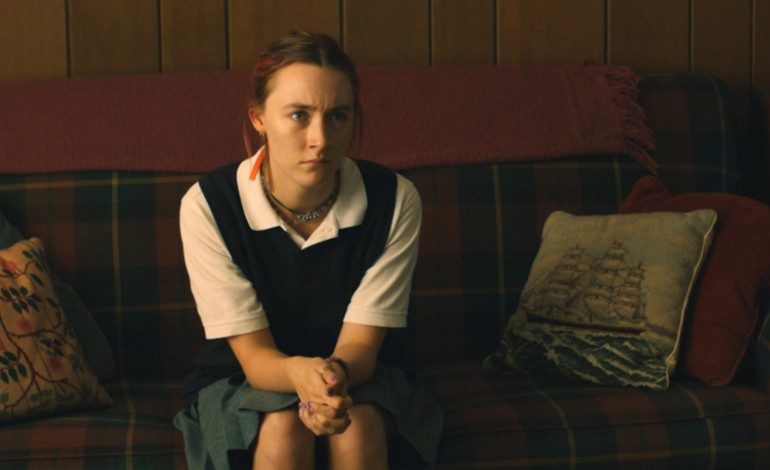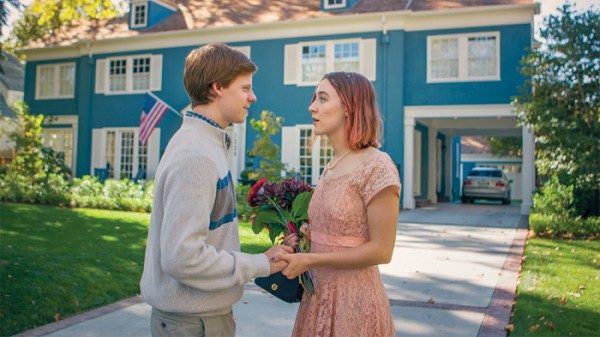

Greta Gerwig presents a love letter to growing up in her solo directorial debut Lady Bird. From the overlooked small town California, to lost youth, best friendship, and complicated but loving parent-child relationships, Gerwig touches on every milestone of the classic coming-of-age and makes it completely her own. Teenage rebellion goes hand-in-hand with a desperate clinging to childhood in a way that will make audiences also long for a time of hormonal confusion and general emotional disarray. Gerwig does this through a character yearning to break free, but needing the love and support of home, complexly performed by Saoirse Ronan in a knockout role rivaling her work in 2015’s Brooklyn.
Lady Bird follows the senior year of Christine “Lady Bird” McPherson, as she pursues college in New York amidst average grades, small town doldrums, and a mother who would rather die than have her move across the country. Laurie Metcalf stars as Lady Bird’s mother Marion and delivers an unabashedly honest performance of a woman masking her love and respect for her children behind ridicule and judgement. She and Lady Bird butt heads around every turn, but the neurotic and emotional motivations behind both women’s actions gracefully puts the audience in one shoe and then the next, never ceasing in playing a dramatic tug-of-war between the two.
Lady Bird goes through many other trials outside of her relationship with her mother, these including two separate relationships with boys who disappoint in different ways (Lucas Hedges, Timothee Chalamet) and in her changing dynamics with her best friend Julie (Beanie Feldstein), her biggest support and her most jilted relationship. Each person that either moves right through or stays permanently in her life serves their own distinct purpose for Lady Bird and tells their own story of youth, amalgamating the “people we knew” in high school in both a nostalgic and realistic way worthy of their emotional outputs.
Not only is Gerwig’s narrative rich in character and theme, but also within her handling of the plot. Gerwig does something very unique as a director and as a proponent of the coming-of-age genre. The film very frequently glosses over what would seem to be momentous plot points in any young character’s story in favor of their emotional fallouts. Without getting far into spoiler territory, for example, one scene in which Lady Bird learns vital and heartbreaking information is treated with about 10 seconds of screen-time. The following scene, though, showing her being comforted by her best friend while she cries, puts emphasis on the emotional memory of youth rather than inciting incidents. It presents a veritae uncommon in coming-of-age tales that truly makes it stand out on its own.
Verdict: 4 out of 5
Gerwig’s film is genuinely heartbreaking as well as an honest delight in watching a rebellious teenager turn into a self-aware and self-actualized woman. It is infinitely satisfying and richly told. Ronan and Metcalf are their very best bouncing off of each other, and the film is strongest when it focuses on the complexities and fluctuations of their relationship. Gerwig’s fast-talking gibberish-y humor shines through and creates a solidly-paced, well-balanced movie experience.


